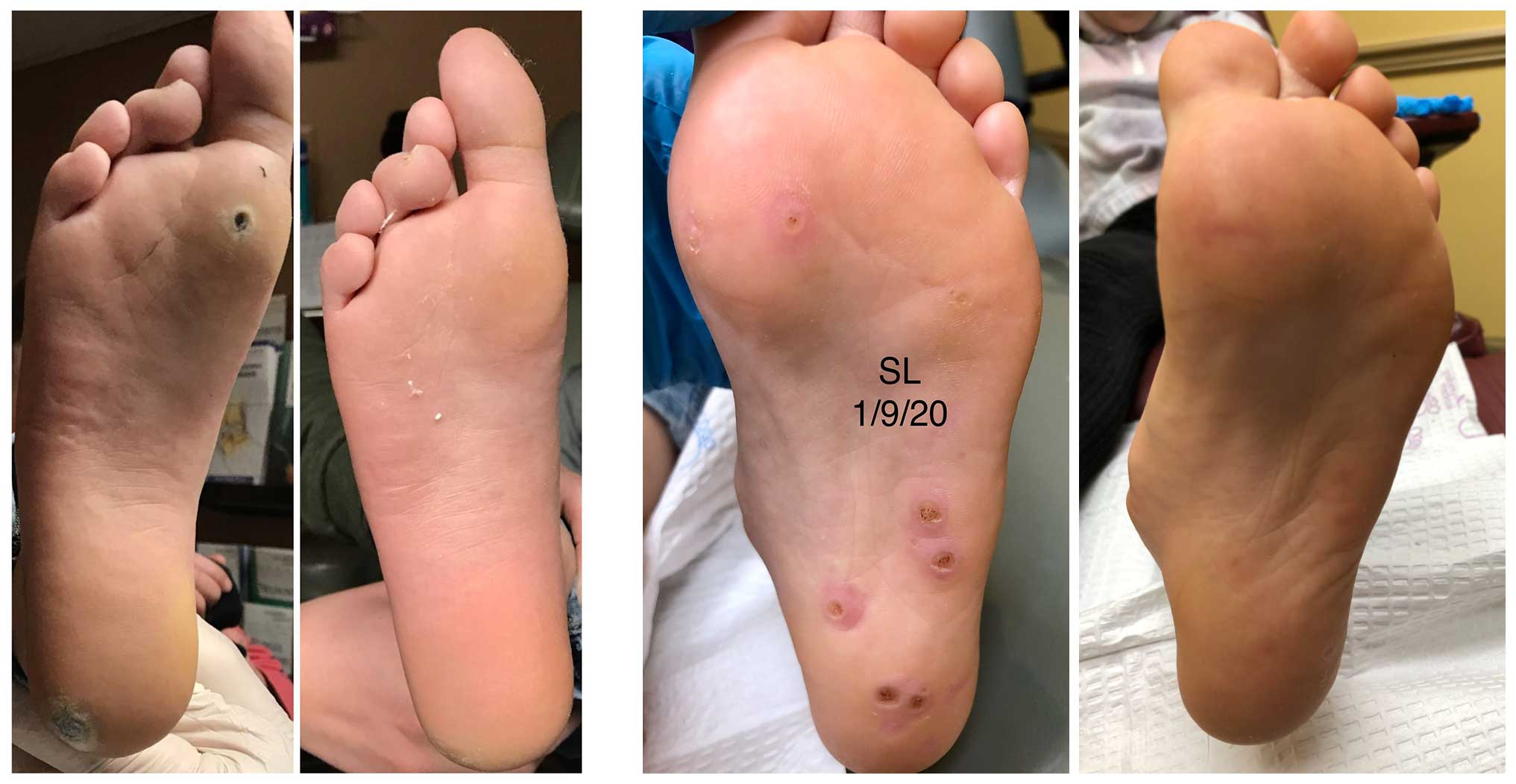What You Need to Know About Treatment Plantar Wart
If you’ve recently had the misfortune of coming down with a plantar wart, now is the time to take action. Plantar warts are highly contagious and can spread quickly if not treated appropriately. While it’s never pleasant to deal with any type of health issue, being armed with the right information on treating your condition can help make this process much smoother and less intimidating. In this blog post, we will cover what you need to know about dealing with treatment plantar wart in order to ensure that they don’t cause further problems or complications – from diagnosis and treatment options. Read on for all the essential details!
Overview of Plantar Warts – Causes, Symptoms, and Diagnosis
Plantar warts are a common foot condition that can cause discomfort and pain, disrupting daily activities. These warts occur on the soles of the feet and toes and are caused by the human papillomavirus (HPV). Common symptoms of plantar warts include raised, hardened areas that are painful to pressure and have small black dots, indicating clotted blood vessels. The diagnosis of plantar warts is usually made by a podiatrist or dermatologist, and treatment options include topical medications, freezing, and removal through surgical means. It is important to seek medical attention if you suspect you have plantar warts, as early diagnosis and treatment can prevent the spread of the virus to others and reduce the risk of complications.
How to Treat Plantar Warts – Medical and Home Remedies
Plantar warts are a common condition caused by a viral infection on the sole of the foot. While they are not usually harmful, they can be painful and unsightly. Fortunately, there are numerous medical and home remedies available to effectively treat plantar warts. Medical treatments may include freezing, burning, or surgical removal of the wart. Meanwhile, home remedies such as duct tape application, salicylic acid, and tea tree oil can also be effective. It is important to consult with a healthcare provider and follow recommended treatment protocols for optimal results in treating plantar warts.
Professional Treatment Options for Plantar Warts – Cryotherapy and Surgery
Plantar warts, also known as verrucas, can be a frustrating and painful condition. While some warts may disappear on their own over time, others may require professional treatment. Cryotherapy and surgery are two options for treating plantar warts that are particularly stubborn. Cryotherapy involves freezing the wart with liquid nitrogen, which causes the wart to blister and eventually fall off. Surgery, on the other hand, involves removing the wart with a scalpel or laser. Your healthcare provider can help you decide which treatment option is right for you based on your individual needs and medical history. It’s important to seek professional treatment for plantar warts in order to prevent them from spreading to other areas of your foot or to other people.

Plantar Warts
Tips on Managing Pain and Discomfort from Plantar Warts
Plantar warts can be a painful and uncomfortable experience, but fortunately, there are ways to effectively manage the discomfort. One tip is to apply over-the-counter patches containing salicylic acid and cover them with tape to keep them secure and in place. Another suggestion is to soak your feet in warm water to help soften the wart and make it easier to remove. It’s also important to frequently change your socks and shoes to avoid spreading the virus and creating additional discomfort. And finally, be sure to consult with a healthcare professional if the pain becomes unbearable or if the warts do not improve after several weeks of treatment.
Long-term Prevention of Plantar Warts – Habits to Avoid Reoccurrence
Plantar warts can be a frustrating and painful condition, but taking proactive measures can prevent reoccurrence in the long term. It’s important to avoid habits that can increase the likelihood of developing plantar warts, such as walking barefoot in public areas, sharing towels or shoes with others, and picking at existing warts. Additionally, practicing good foot hygiene by thoroughly washing and drying your feet daily can also help prevent the spread of the virus that causes plantar warts. By adopting these habits, individuals can reduce their risk of experiencing the discomfort and inconvenience of plantar warts in the future.
Plantar warts are a common nuisance that many people experience at least once in their lives. While the infection can be a source of annoyance, it’s important to take the necessary steps to treat them sooner rather than later in order to prevent long-term issues or worsening of symptoms. With proper diagnosis and understanding of treatment options, individuals should be able to plan an effective treatment program tailored to their unique situation.
Flagstaff Foot Doctors: Anthony Rosales DPM
https://www.google.com/maps?cid=8835841318590452161
421 N Humphreys St, Flagstaff, AZ 86001, United States
(928) 774-4825
https://flagstafffootandankle.com/
